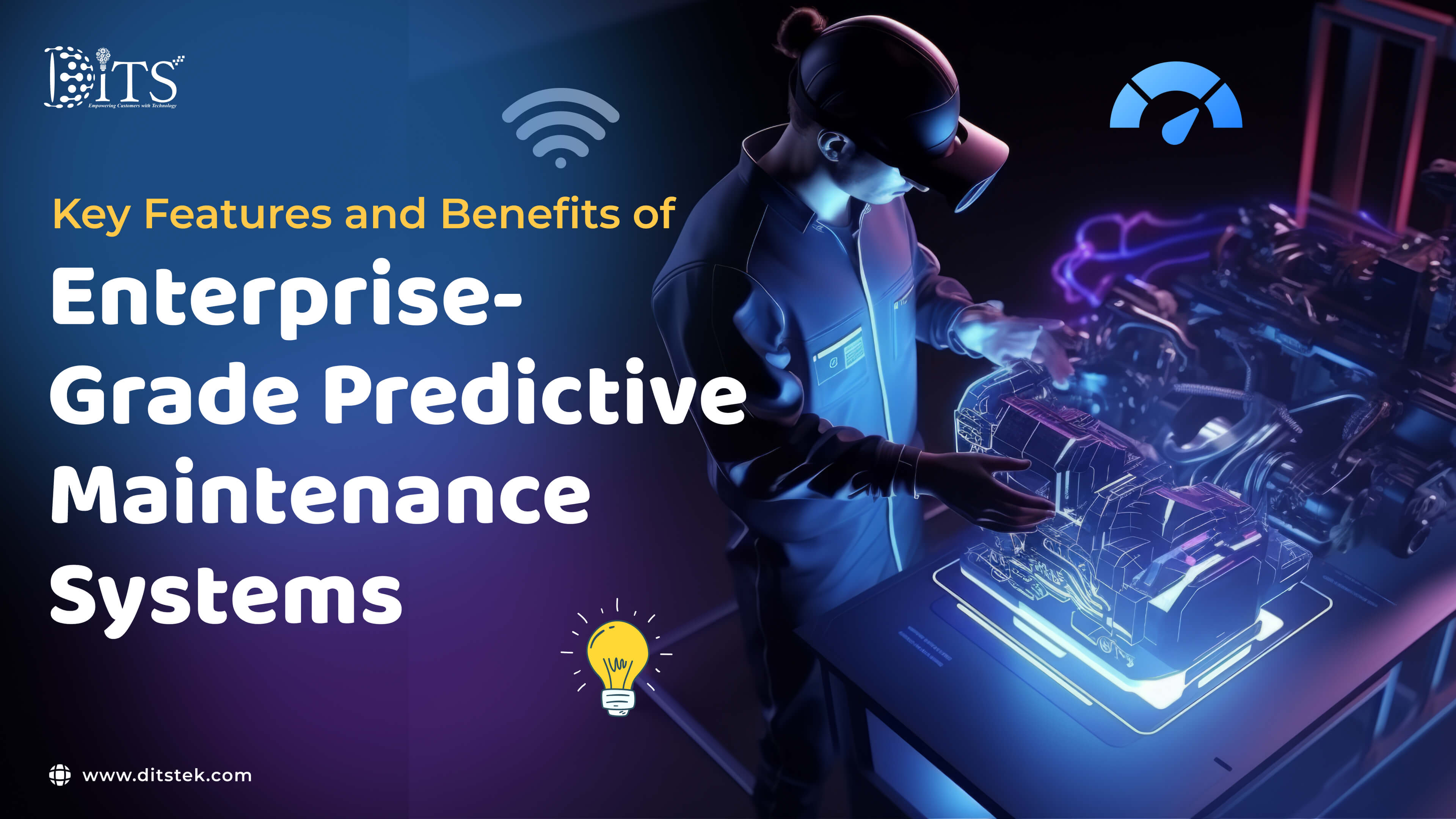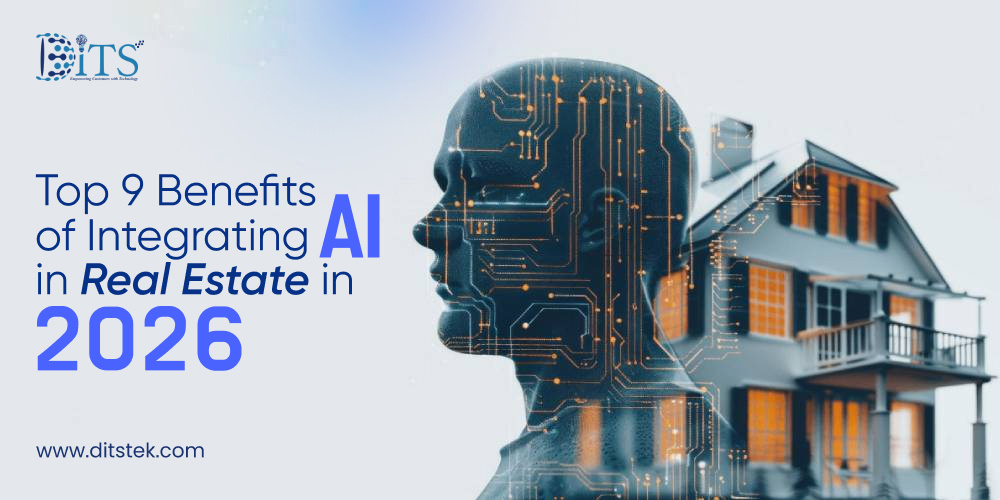How to Develop AI Solutions for Business
Table Of Content
Published Date :
13 Jun 2025
The implementation of Artificial Intelligence in business processes is gaining popularity due to the automation and convenience it offers. Using AI in day to day business tasks, not only saves time and money but also improves efficiency and helps them gain a competitive edge in the market.
However, implementing artificial intelligence in business is not as simple as installing software on your computer or an app in your phone; it requires careful planning, execution, and maintenance to ensure its proper implementation and functioning in business processes.
In this blog, we will share some best practices for implementing AI in your business processes and real use cases of AI business solutions in different industries.
Empower Your Business with Expert AI Software Development!
Leverage cutting-edge AI solutions tailor-made to boost your productivity and innovation. Let our expertise put your brand in the AI spotlight!
Step by Step Guide to Develop AI Solutions for Business

The development of AI software solutions for any business requires a precise understanding of requirements, discovery of relevant solutions, and collaboration with experts for the proper implementation of AI into the required processes. Here are the common steps for developing AI solutions for any business.
Evaluate Your Needs
The first step in developing an AI solution is to evaluate your current operations and look at where you can apply AI to add some real value. For many businesses, this includes identifying tasks that are repeated unnecessarily, inefficiently, labor-intensive, and processes that need better data-based insights.
For instance, AI can help automate inventory management, forecast demand, and improve customer interactions through the use of AI powered chatbots or virtual assistants. By focusing on specific problems, businesses can build specific AI applications to deliver results.
Data: The Basis of AI
AI models need data, therefore ascertaining you have data in good order is critical. First, review your data sources, collect enough relevant data to align with your business objectives. Having clean and accurate data will have a very large impact on the outcome of your AI model.
You should also consider data privacy and security. Having strong data governance practices will build trust with your customers and increase your chances of compliance with regulations.
Collaborate with Experts
To create AI solutions, you'll often need the technical know-how that's usually not available in-house. In this way you can engage with data scientists, AI software developers, or technology consultants, who can address your company’s skill-set shortages. They can help you evaluate algorithms to find the right one, train the models and ensure that the AI solutions you implement align with your business objectives.
Test, Refine and Scale
Testing the AI solutions in a controlled environment before you deploy them across the organization is critical to make sure that you identify any issues and to refine the AI solutions so they can outperform the manual processes or improve accuracy and performance.
It is also important to monitor the results and get feedback from stakeholders. Iteratively testing and refining AI solutions can help you deliver adaptable solutions for the long term.
Adopt Continuous Improvement
AI is evolving every day. To remain relevant and competitive in the market, businesses should continuously assess and revise AI solutions. Implementing a culture of continuous learning and innovation can help organizations stay ahead of market dynamics and evolving customer needs.
By following these processes, organizations now have the capability to create AI solutions that not only solve short-term challenges but also prepare them for continued success in an evolving and competitive environment where every business is trying to leverage the full advantage of AI.
Use Cases of AI in Different Industries

The use of AI in different industries has a significant impact on their business growth. In this section, we will explain how AI is being used in various industries with examples and use cases.
AI in Healthcare
AI uses patient data to develop personalized treatment through health records and genetic data. Smart algorithms also automate administrative tasks by performing actions such as medical coding and billing. This reduces the amount of manual work and improves workflows.
IBM Watson Health leverages AI and cloud computing to review vast amounts of medical literature. By collecting and analyzing clinical trial data and patient records, it helps generate personalized treatment plans. This approach leads to more accurate diagnoses and improved treatment recommendations.
Retail and E-commerce
In retail, AI algorithms can track the habits and preferences of consumers to offer customized recommendations, improving the customer shopping and overall experience. Furthermore, AI can help optimize inventory to maintain correct stock levels and avoid stockout of items.
Intelligent inventory management powered by AI also helps in determining inventory stock levels, as retailers can have a more accurate forecast of customer demand, eliminating stock of unwanted items while providing popular items.
One of the best examples of AI applications includes Amazon, which utilizes AI to gain personalized recommendations based on consumer browsing and purchase history. This enables the company to enhance customer experience, thus increasing sales and customer satisfaction.
Transportation and Logistics
From self-driving vehicles to supply chain automation, AI is optimizing the efficiency, safety, and sustainability of the transportation and logistics sector.
AI is being used in self-driving cars, trucks, and drones where it navigates complex environments responsively to improve safety and reduce accidents. Waymo's autonomous vehicles have accumulated over 20 million miles, providing an example of safe and reliable transportation.
AI driven tools, like Google Maps, are used to analyze traffic, road conditions, and weather in real-time to help clients identify and take the most economical routes, saving & reducing fuel costs.
For example, UPS’s ORION system has significantly reduced delivery mileage, saving over $400 million annually using AI.
AI optimizes supply chains and logistics by predicting demands and to manage inventories, and potential disruptions, which facilitates a smoother supply chain operations. DHL is using AI to optimize warehouse management, determine shipment delays, and improve operational efficiency by 20%.
AI in Education
In the education sector, AI is able to analyze the students' learning behaviors and preferences while adjusting content for the individual needs of students thereby providing an efficient learning experience. The use of AI in training also creates a more adaptive method of learning for students and it helps with teachers' adaptation as well.
The best example of AI in education is Coursera which uses AI to create a personalized learning experience for students. As Coursera adapts content for individual students through their learning patterns and preferences, they are providing students with an improved engagement and outcome.
AI in Real Estate
AI algorithms collect, calculate and analyze historical data, local market conditions, and property characteristics to determine how much real estate is worth. AI utilizes machine learning to evaluate data patterns using volume to analyze data to predict price, rental returns, and market volatility.
AI also relies on predictive analytics to quantify the probability of converting a lead to success, allowing agents to establish what leads are priorities based on the potential for conversions, while efficiently managing their time and resources, resulting in faster results and optimizing conversion rates.
AI in Fintech
AI is rapidly evolving the finance industry in many ways such as giving the industry its support through the use of virtual assistants, command over credit ratings and underwriting, and the use of algorithmic trading platforms that evaluate big data. AI guarantees extremely fast data processing capabilities, allowing financial service companies to make valuable decisions for their customers and themselves with urgency.
Companies like XTX Markets offer an example of a wholly AI based model for interpreting market data and executing a ton of trades in very quick motion and timeframes, which has led to their competitive advantage. Bank of America’s AI service chatbot, Erica, can now serve millions of customer inquiries to provide instant and customized support. The AI-automated systems at HSBC have vastly improved their fraud detection, while also decreasing investigative times.
AI in Autonomous vehicles
Autonomous driving always captures the imagination, but it’s one of the best demonstrations of how AI and IoT operate together. Autonomous vehicles (AVs) make extensive use of sensors, which are used to constantly gather new and vast information about surroundings. Data is processed into intelligent insights using AI models, which then enable the vehicle’s navigation platform to evaluate surroundings and complete complex path planning in real time.
Quality inspection combines computer vision with artificial intelligence to form one of the biggest applications of AI: Automated optical inspection, that scans industrial machinery for quality defects, and once recognized uses AI models for classification of the images and failure classes or predictive scheduled maintenance.
AI in Cybersecurity
According to Gartner, there were 20 billion IoT devices connected to the Internet in 2020, which Statista forecasts by 2030 that number will grow to about 50 billion all over the world, everywhere from wearables to running trains. The prevalence of IoT devices and their usage by multiple actors make them attractive targets for attacks.
AI-enabled cybersecurity solutions can detect breaches in networks, protect valuable data and prevent cyber-attacks. AI-enabled systems can learn what the normal activity patterns look like and identify when abnormal activity is present, which may decrease the occurrence of erroneous alerts as well as may highlight a possible cyber-attack.
AI that Understands Your Business: Real-World Applications Across Sectors!
Explore how AI is redefining productivity, customer experience, and innovation in every industry - yours included!
Why Choose DITS for AI Software Development?
Artificial intelligence is so vast, and so are the applications of this wonderful technology. When it comes to developing AI software for business, the requirements of enterprises are also different. Some may prefer automation of day to day tasks, while others may prefer data security, improved efficiency, or better customer service.
As your requirements and expectations from AI are unique, Ditstek Innovations offers AI software development services tailored to your specific needs. Our team of AI software development experts spends time understanding your unique requirements and creates a detailed plan to satisfy them with our solution. We have expertise and experience in developing AI solutions for a variety of industries, including but not limited to Healthcare, Business Automation, Real Estate, Ed-Tech, Retail, and Fintech.
We aim to automate your workflow, improve efficiency, provide data security, reduce costs, and assist you in delivering enhanced customer service for your business. With years of experience in delivering custom software development services to enterprises across the world, DITS is a company you can rely on for your next AI solution.
Conclusion
Creating AI solutions for any business goes beyond merely adopting a new technology. It involves a thoughtful process that begins with understanding your needs and identifying the right use cases that can provide real business value from AI. AI solutions have tremendous opportunities for enterprise efficiency and growth, from automating repetitive tasks to data analysis for better decision-making.
For a successful implementation of AI, thoughtful and careful planning is needed that can ensure high quality data, and working together with experts who can provide expertise and guidance throughout the process. As AI develops, enterprise-level businesses that adopt and apply these AI technologies will have a better chance of facing challenges, staying ahead of competitors, and driving sustainable innovation into the future.
FAQs
What are the major advantages of designing AI solutions for organisations?
Designing AI solutions allows organisations to automate repetitive tasks, use data-driven insights to leverage decision-making, and save money overall. AI will also help with better customer service and market change adaptability.
Why are large organizations investing in AI?
Large organizations are investing in AI solutions to be able to compete now and in the future, get ahead of the competition, and solve day-to-day business challenges. The use of AI will help organizations manage large data, and respond quickly as trends or market changes occur.
How can businesses begin to develop AI solutions?
First, identify potential business problems that AI could help solve, then collect quality data, work with experts, and pilot solutions to develop successful AI applications.
How does AI improve customer experiences?
AI-enhanced applications like chatbots and recommendation engines provide personalized customer interactions and faster response times that enhance customer engagement and satisfaction which builds loyalty.
How do AI solutions enhance decision making?
AI makes sense of large amounts of data, revealing trends and patterns that guide businesses to data-informed decisions backed by accurate information instead of guess work.
What role does AI play in business innovation?
AI identifies trends and patterns in data that humans may fail to notice, enabling creative solutions and ideas for new products that drive innovation.
Does using AI mean that we are replacing human jobs?
Not necessarily. AI is more frequently used to assist humans with repetitive tasks so they can focus more time on strategic, higher-value outputs.

Dinesh Thakur
21+ years of IT software development experience in different domains like Business Automation, Healthcare, Retail, Workflow automation, Transportation and logistics, Compliance, Risk Mitigation, POS, etc. Hands-on experience in dealing with overseas clients and providing them with an apt solution to their business needs.
Recent Posts

Explore predictive maintenance software features that reduce downtime, cut costs, and boost efficiency with enterprise-grade, AI-powered maintenance systems.

Benefits of AI in real estate include better cash flow planning, improved marketing ROI, stronger pipeline visibility, and scalable growth.

We at DITS offer custom Population Health Management Software Solutions to help you measure the effectiveness and efficiency of care delivery to patients. Read our blog to know in detail.